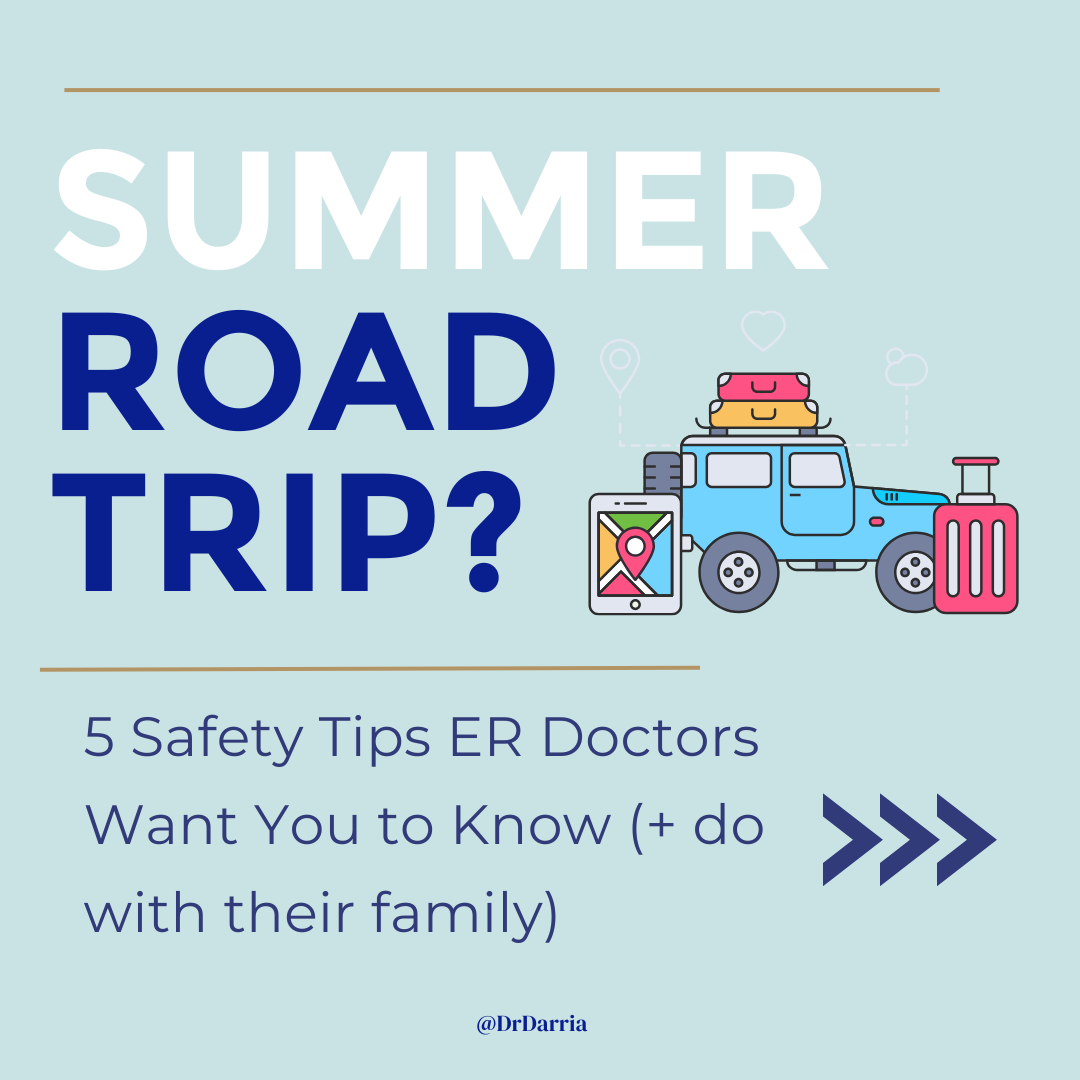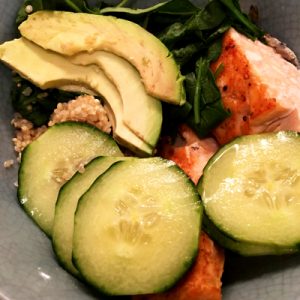Headed out on a road trip? Here's what ER doctors want you to know - and do themselves.
1) Designate a co-pilot, not just a passenger.
When you’re the driver, you can get many requests – checking the GPS, passing snacks, coordinating activities, phone calls – all of which take your eyes and attention off the road. According to the National Safety Council, summer months have some of the highest rates of traffic fatalities – often due to the increased volume of traffic.
- To keep you and the family safe, designate a “co-pilot”.
- It’s this person’s job to: monitor the GPS (and note for any traffic or issues that would lead to a re-route).
- Pass out snacks
- Call ahead to your destination to plan reservations, activities, etc.
- DJ the music
- Make sure that the driver has everything they need, to avoid taking their eyes and attention off the road
2) Do a car-seat check before you leave.
It sneaks up on us – our kids grow, and subtly start to surpass the safety settings on their car seats! Before you take off, for each child’s seat
- Make sure they’re in the correct seat, and not above the maximum height / weight for the seat
- Make sure their connection is the correct one – above a certain wait, children with LATCH seats need to switch to a seat belt connecting the seat
- Make sure that all connections to the seats are TIGHT – you want these to be as tight as possible, to make the child’s seat as much of a *part of the car* as possible, so the seat bears the brunt of the accident, and not your child.
3) Pack a travel first aid kit.
When on the road, you don’t always have access to the meds and first aid items you may need! Here’s a few things that I keep in my car.
- Bandages (variety of sizes)
- Tweezers and antiseptic wipes (for splinters, ticks, etc)
- Thermometer
- Zyrtec or Claritin for allergic reactions
- Acetaminophen or Ibuprofen for pain or fever (make sure to pack the age-appropriate versions)
- Any emergency / as-needed or prescribed medications that you may need. That can include Epinephrine, insulin, or other medications. Breezy Packs can keep medication at room temperature and do not require refrigeration.
4) Buckle up – every single time – no exceptions.
I’ve spoken before about patient stories where people took off their seat belt “for just a second” – or one where they last minute chose to leave it on – just before their car hydroplaned. Those split decisions may feel small, if you just need to retrieve a snack or something that fell on the floor – but I’m not exaggerating by saying they’re actually life or death.
- No matter what, do NOT take off your seat belt, nor allow anyone else to. If the baby is crying, a favorite activity fell, or anything else – stay in your seat.
- If needed, pull over at a rest stop or appropriate exit – don’t pull over on the side of the highway, due to the risk of being hit by another car.
- Make this a rule, for everyone, every single time.
5) Don’t just rely on cell service for emergencies.
We’ve become SO accustomed (and cough, dependent) on technology – anyone else forget how to drive and function without it? If you’re road-tripping, you’ll be glad if you take a moment to have a tech-free backup!
- Download maps offline
- Write down key emergency contacts
- Write down the address, contact info, electronic key open, or any other details of any reservations or destinations. (anyone else had a moment where they cant login into their account, and hence cant figure out key destination details?!?)
Summer road trips are about memories—not mishaps. A little prep can prevent the kind of emergencies I see all too often. Safe travels, and may your biggest problem be running out of snacks before the next rest stop!
Do you have any specific travel safety tips that you follow when on the road? Share with us!
All my best,
- Dr. Darria







